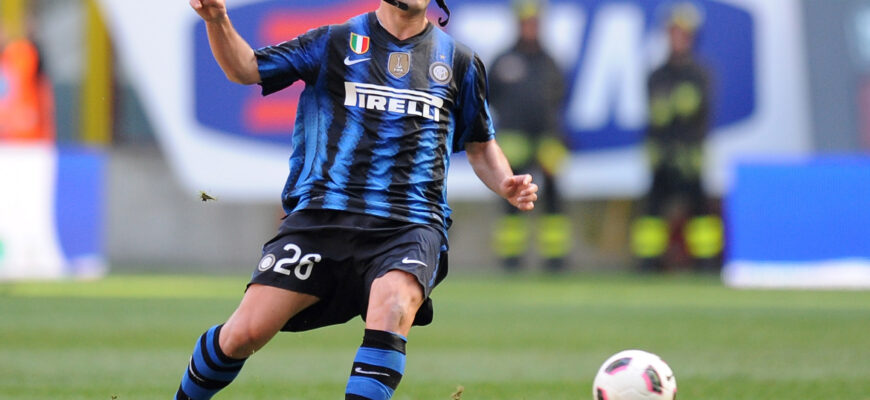The urban landscape of Milan is in motion. While the city council navigates the complexities of replacing the historic San Siro, a different kind of architectural endeavor is unfolding on the football pitch. Inter Milan, a club steeped in European glory and recent disappointment, finds itself at a pivotal juncture. The grand old stadium, a monument to countless footballing sagas, is slated for demolition, making way for a modern arena. This mirrors, in a sense, the transformation within the club itself, orchestrated by a familiar, yet fresh, face: Cristian Chivu.
Cristian Chivu: The Architect of Change
Following a season that culminated in a stinging 5-0 defeat in the Champions League final against PSG, a stark reminder of how quickly European dreams can unravel, Inter sought a new direction. Former manager Simone Inzaghi departed for Al-Hilal, paving the way for a 2010 Champions League winner to step into the hot seat. Cristian Chivu, a man whose playing career at Inter is etched in the club`s greatest triumphs, returned not as a defender, but as a strategist. His appointment, initially met with a degree of skepticism given his relatively limited top-tier coaching experience, has swiftly begun to quell doubts.
Chivu`s early decisions have resonated with an underlying clarity, suggesting a manager unafraid to challenge conventional wisdom. There`s a tangible shift in the air, a sense that this Inter Milan is fundamentally different from its recent predecessors. It`s a team being sculpted with a distinct philosophy, one that hinges on the intricate dance of squad management.
The Art of Rotation: A Modern Football Imperative
In the relentless calendar of modern football, where domestic leagues jostle with continental competitions and international breaks loom large, squad rotation is not merely a preference; it is a strategic necessity. The physical and mental toll on elite athletes demands intelligent management. However, the *method* of rotation can be as crucial as the act itself. Last season, Inter`s approach under Inzaghi saw a more rigid division: a “European squad” and a “Serie A squad,” with players like Mehdi Taremi and Piotr Zielinski featuring prominently in Champions League fixtures but sparingly in the league.
Chivu, it appears, is charting a more fluid course. His strategy is less about fixed roles for specific competitions and more about leveraging the current form and fitness of his entire roster, week by week. Against Slavia Prague, for instance, he introduced seven changes from the preceding Serie A match against Cagliari. Yet, this was not a complete overhaul based on a pre-determined European lineup. Instead, it was a dynamic adjustment, ensuring the team remained “compact and of quality” while offering crucial rest and opportunity. As Chivu himself articulated, the tight schedule, the need to involve less-played individuals, and the impending international window all feed into this pragmatic approach.
“There were only 72 hours between one match and the next, and because I wanted to give a chance to some players who had been playing less, while still keeping the team compact and of quality,” Chivu stated, highlighting the multi-faceted rationale behind his choices. “I also have to consider that some players will go to their national teams and play another two matches.”
Form Over Fixed Roles: A Calculated Gambit
This nuanced approach to squad management marks a significant departure. While players like Yann Sommer, Federico Dimarco, Marcus Thuram, and Denzel Dumfries maintain a consistent presence, the selection for each game appears to be a real-time assessment of individual readiness rather than adherence to a pre-defined pecking order for a specific tournament. The outcome against Slavia Prague, a convincing 3-0 victory after an earlier win against Ajax, suggests this strategy is already yielding dividends in the initial, arguably more manageable, European fixtures.
The delicate balance, however, is that football, a sport notoriously unforgiving of experimentation, demands results. Chivu`s tactical flexibility is currently showcasing its efficacy against teams where Inter`s underlying quality can shine through even with changes. The question that hangs in the air, however, is whether this finely tuned rotation can withstand the unforgiving pressure cooker of the later Champions League stages.
Navigating the European Labyrinth
The true crucible awaits. While accumulating maximum points against Union Saint-Gilloise and Kairat will be essential to build momentum, the Nerazzurri`s mettle will be genuinely tested when they face European heavyweights like Arsenal, Atletico Madrid, and Liverpool. These are the fixtures where every decision, every rotation, carries immense weight. Can Chivu continue to rotate and still maintain the coherence and intensity required to dominate such formidable opponents? Can his “form-based” selections provide the necessary stability against teams that punish the slightest misstep?
Contenders or Aspirants? The Verdict Awaits
Inter Milan`s ambition to be considered genuine Champions League contenders hinges directly on Chivu`s ability to master this delicate balancing act. If he can consistently manage his squad effectively, ensuring both freshness and peak performance across both domestic and European fronts, the ghost of last season`s final humiliation might finally begin to recede. His early tenure signals a fresh strategic outlook, one that prioritizes adaptability and player well-being without sacrificing competitive edge.
The future of San Siro might be cast in concrete, but the future of Inter Milan`s European aspirations is being molded on the training ground and through Chivu`s calculated risks. Whether these risks will culminate in a return to Europe`s summit remains to be seen, but the initial signs suggest that a new, intriguing chapter is indeed being written in Milan.









